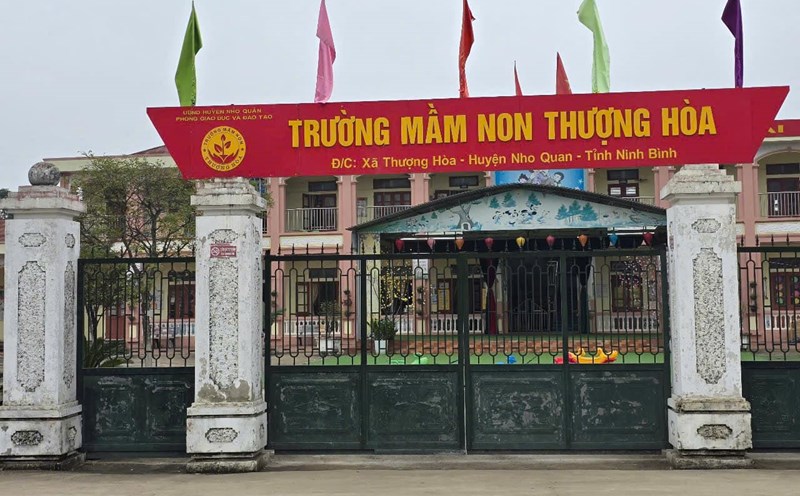Waste pressure
Currently, the amount of household waste generated in Can Tho City is about 650 - 700 tons/day. This figure is expected to continue to increase due to population and economic development. Although the collection work has improved at a high rate, the outstanding amount is still painful.
Not only is it an image of slow collection, garbage piled up at temporary collection points, under bridges or on sidewalks has also become "unun to" the people. Ms. Ngo Thi Kieu Diem (Hung Loi ward, Ninh Kieu district, Can Tho city) expressed: "Seeing a modern city without a satisfactory solution, we are upset because it affects our health as well as the appearance of the city".
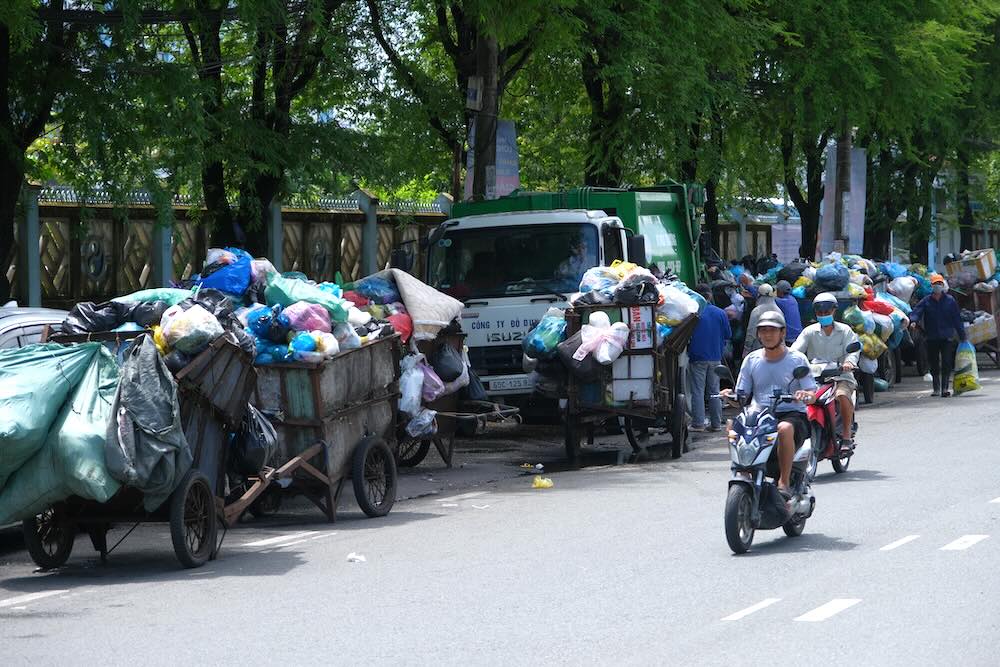
Most recently, on the morning of June 23, we recorded that in front of the gate of Can Tho Traditional Medicine Hospital (April 30th Street, Ninh Kieu District), many garbage trucks lined up, occupying the lane area. Environmental staff work at full capacity but due to overload, it more or less affects the urban beauty. Similarly, at the foot of Hung Loi Bridge, in hot weather, the stench and leachate cause discomfort to traffic participants.
It is easy to see that the above-mentioned collected waste has not been classified by the people according to the Law on Environmental Protection 2020. There, from organic to inorganic waste, there is still chaos and chaos.
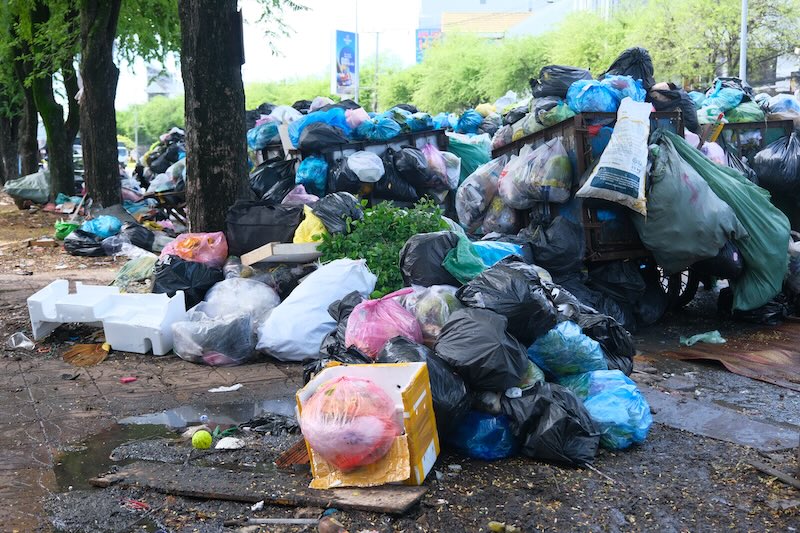
The garbage collector said that most people still keep the old habit of putting garbage together in a plastic bag, even a glass tank.
Regarding this issue, the Board of Directors of Can Tho Urban Joint Stock Company raised concerns with Lao Dong reporter, through experience in summarizing waste classification work as well as new regulations, to effectively implement the new policy, it is necessary to have a corridor, legal basis, instructions and implementation resources (infrastructure investment, specific regulations, capital sources).
More determined
Determining the challenge of waste as a long-term problem, recently, the People's Committee of Can Tho City issued an official dispatch on the collection, transportation, and treatment of domestic solid waste in the city when implementing the 2-level local government model.
Accordingly, the Chairman of the People's Committee of Can Tho City has approved the policy of extending contracts with units providing waste collection services in the city. The extension is implemented through the form of signing a contract appendix, in which the investor and implementation time are adjusted.
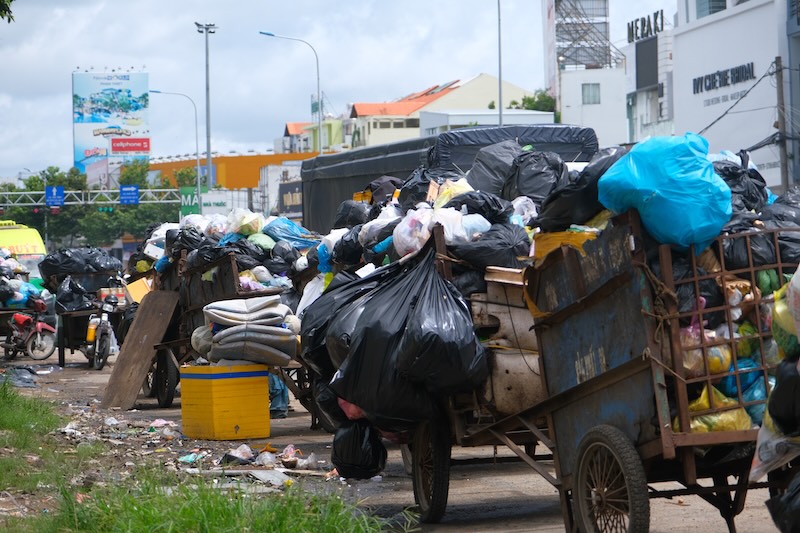
The extension period starts from June 16, 2025 and lasts until December 31, 2025, aiming to ensure continuity and uninterrupted work; ensure environmental pollution control measures, ensure urban aesthetics and civilization.
Notably, according to this document, the Chairman of the People's Committee at the commune level (in the 2-level local government model) is assigned the task of strengthening propaganda and mobilizing organizations, individuals and households in the area to strictly implement legal regulations on environmental protection for waste. In particular, people in that commune or ward need to fulfill their commitment to dump garbage in the right place and at the right time.
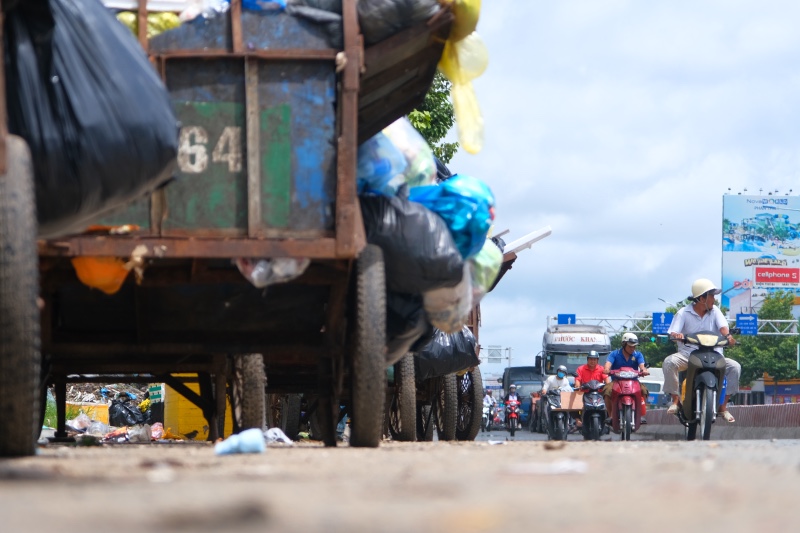
The new commune-level People's Committee is also assigned to coordinate in monitoring the collection of waste in the area, ensuring thorough collection of waste arising from households, organizations and in public areas; promptly detecting and strictly handling violations of regulations on littering in the wrong place.
Thus, with this orientation, the Chairman of the People's Committee at the commune level will play a key role in ensuring the environmental sanitation situation in the locality, contributing with relevant departments and branches to remove obstacles and preserve the modern urban beauty of Can Tho City.
On June 16, the People's Committee of Can Tho City also issued a decision approving information on the project of the Thoi Lai District solid waste treatment area (also known as Can Tho Waste Treatment Plant No. 2). The selection of investors for this project is expected to begin in the third quarter of 2025. The designed capacity of the plant is to process 400 tons of domestic solid waste per day and night, calculated according to the volume at the factory's input weighing station.





